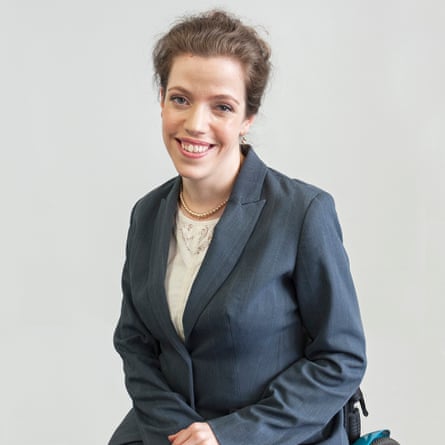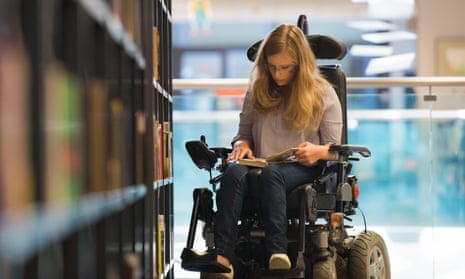When I was no longer stuck in the house after many years, due to the effects of multiple autoimmune conditions, I celebrated by burning my pyjamas and volunteering for the largest health board in Wales.
I had worked online as a writer and therapist during my long illness, but when I was well enough to leave home, I wanted to contribute to my local community. I rang the local health board in south-east Wales and volunteered my services. They asked me to contribute to their newsletter.
That newsletter contained my ‘Kitchener’ moment: a small advert asking “Are you a woman, under 30, disabled, LGBT, BAME?” As I am many of those things I asked myself if I could contribute my passion, lived experience and training to a health board. I had never thought of a board role before, but I recognised it as somewhere I could have a voice in issues that impact on my life and matter most to me: social care, health and housing.
Only 3% of public appointees identify as disabled – just 180 people out of 6,000 public appointments on 500 bodies. The Lord Holmes parliamentary review on the inclusion of disabled people in public life, which reported in December 2018, uncovered many barriers and biases.
As a psychotherapeutic counsellor I help people who are often at the sharp end of policy and political decisions. I thought I would bring a uniquely integrated view to board discussions, and I have. Since my first public appointment placement to the body responsible for delivering all NHS healthcare services in my area, I have also sat on the board of a health council for patient rights and advocacy, and I am now on Social Care Wales, which sets standards for the country’s care and support workforce.
I feel I have made a difference by bringing my perspective into the room. I’ve supported integrated practice between health and social care, and have called for managers’ responsibilities to be highlighted in social care workers’ guidelines, so that workers are clear what support they are entitled to and how to get it.

Here is my advice to other disabled women who would like to be appointed to sit on the board of a public body. First: apply. Recognise it as an asset if you think you don’t look like other board members, or don’t have the same background. Boards need to contain diverse voices; someone like you or me.
Second, pull out the skills your non-traditional but rich life experience has given you. In my application to Social Care Wales, I was asked to give an example of when I had held an executive to account. I used the example of negotiating with my consultant while hospitalised to be allowed to have an outpatient MRI to avoid spending further weeks in hospital – an achievement that required courage, tact and strong negotiating skills. This showed the value of my unconventional but powerful experiences.
Third, connect to mentors and role models. It is hard to be what we can’t see, so seek out people to enrich your vision.
The challenges facing disabled women are usually assumed to be physical: how do I get into the building as a wheelchair user? As a wheelchair user, I know this is still an issue. However, we now also face more subtle but incredibly powerful “stay away” signs, such as not seeing role models; unconventional CVs being judged as inferior in the application process; and a focus on experience gained in sectors in which disabled women are underrepresented.
The Holmes review has set a target of 11.3% disabled public appointees by 2022. Public bodies spend £200bn a year and shape the lives of people across the UK. They range from the Arts Council to the Social Mobility Commission. The fact is, we do need you. You have too much talent to waste. Let’s do this.
Grace Quantock is a psychotherapeutic counsellor, writer and board member for Social Care Wales
